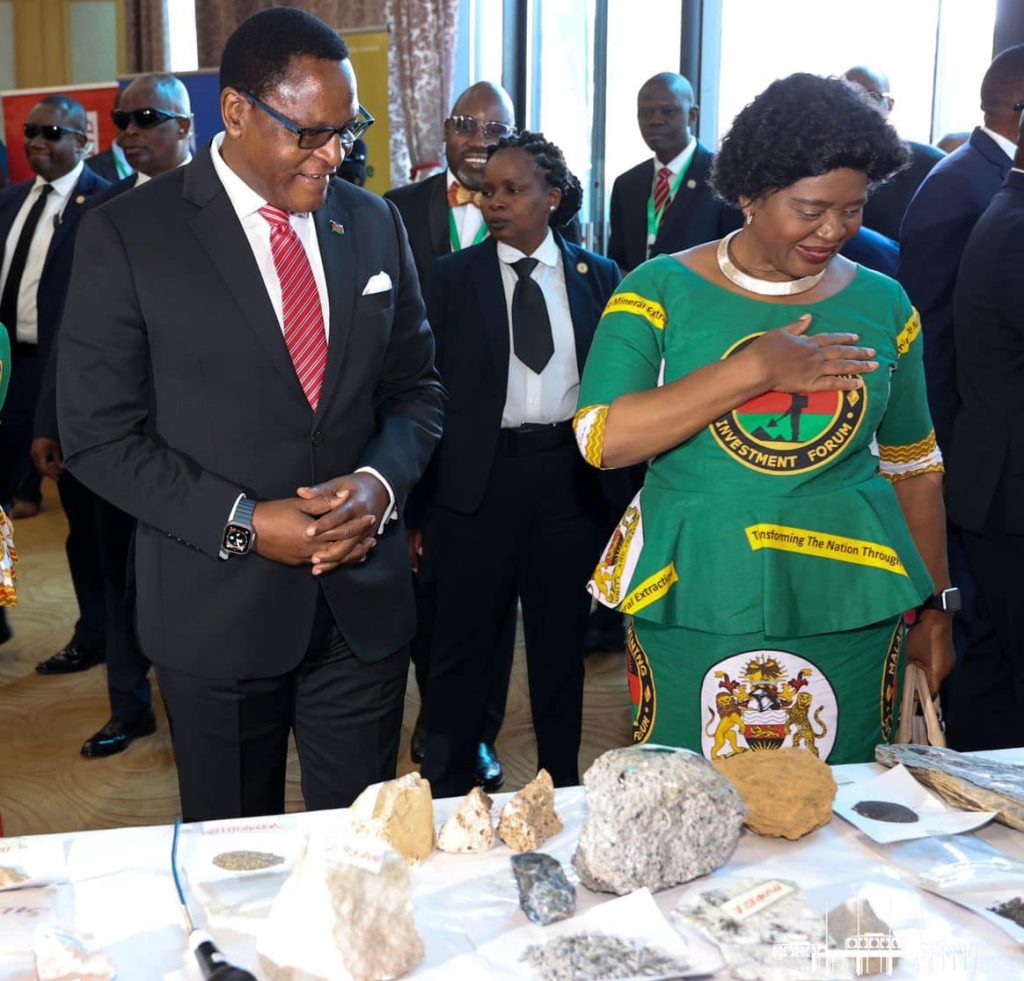Chakwera hopes mining will end forex woes
President Lazarus Chakwera says mining has the potential to end the country’s perennial foreign exchange challenges in six years if several mining projects take off and add to the exports basket.
The President said this in Lilongwe yesterday when he opened the inaugural Mining Investment Forum which attracted local and foreign investors, financiers, policymakers and other stakeholders to shape the future of the sector in the country.

He challenged stakeholders to find solutions to the delayed mining benefits, saying “the country has waited for too long” to reap the real proceeds from the mineral resources.
Said Chakwera: “We hope that by 2030, Malawi will be transformed because the forex that we are lacking today will be available in abundance as a result of the mineral exports that will be happening.”
However, the President rued what he termed negative energy from some people that frustrate efforts to transform the sector.
He vowed that his government will see the end to the efforts that, among others, include the establishment of the Mining Authority and a State-owned mining company to steer the development of mines.
The President said the legal framework is now supportive of growth of the industry, challenging the private sector to take advantage of the good environment and the opportunities the sector offers.
But he was emphatic on Malawi benefiting from the sector, saying government will ensure mining deals are fair to Malawians and that previous mining development agreements are reviewed to remove exploitative elements.
“We must refuse to sign mining development agreements that do not provide benefits to Malawians who are the owners of these mineral resources,” said Chakwera.
The President further said he was hopeful that the ATM strategy, which entails transforming three priority sectors of agriculture, tourism and ,ining, is the country’s answer to economic success as they provide huge potential for massive industrialisation.
Speaking earlier, Minister of Mining Monica Chang’anamuno said she was hopeful the forum would provide a good platform for the country to learn best practices and avoid mistakes that other African mining countries made.
She said the forum will see Malawi ratifying a treaty of Africa-Saudi Arabia cooperation.
Through this partnership, Saudi Arabia is offering $15 billion financing to member countries of the cooperation, part of which has been spared for mining investment financing.
African Minerals Strategy Group (AMSG) secretary general Moses Engadu called on African countries to work together and collaborate on how to strengthen their capacity in not only investing in the extraction of the minerals, but also doing value addition, saying the days of exporting raw materials are over.
He said through the AMSG, to which Malawi is a member, member countries have the opportunity to share expertise, raise resources and find markets for the minerals and the mineral products, unlike individual countries working in isolation.
Despite huge mineral deposits, some in world record quantities such as the Kasiya rutile in Lilongwe and rare earths in Phalombe, the mining sector is currently contributing less than one percent to the country’s economy, but government is seeking to raise that to at least 10 percent by 2030.
Since the 2014 Kauniwuni Project financed by the World Bank to map the country’s mineral resource availability, the discovery of several minerals has not culminated into significant mining activity as the country seeks to diversify its export base away from the tobacco-dominated economy.






7zjeyl